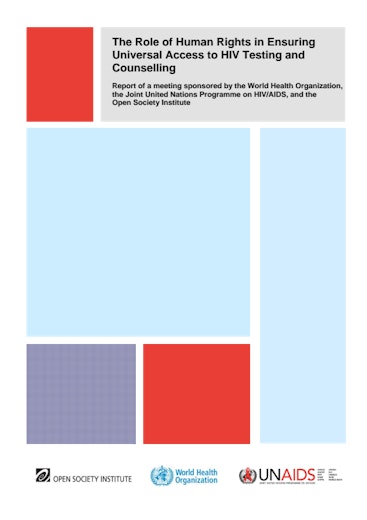Recent years have seen a significant expansion of HIV testing and counselling, a necessary pre-condition for achieving the goal of universal access to comprehensive HIV/AIDS prevention, treatment, care, and support. However, HIV testing and counselling is not implemented fully and correctly unless human rights approaches are integrated into all aspects of its delivery. This includes not only respect for the "three C's" of pre-test information or counselling and post-test counselling, informed and voluntary consent to testing, and confidentiality of test results, but also ensuring an enabling environment that protects people from discrimination, violence, abandonment, ostracism, and other potential negative consequences of a positive test result.
On October 12-13, the Open Society Public Health Program, the Secretariat of the Joint United Nations Programme on HIV/AIDS (UNAIDS Secretariat), and the World Health Organization cosponsored the meeting, “The Role of Human Rights in Ensuring Universal Access to HIV Testing and Counselling." The purpose of the meeting was to bridge the gap between international guidance on HIV testing and counselling and the implementation of this guidance.
The meeting participants represented a wide variety of constituencies, including people living with and affected by HIV, implementers of HIV testing programs, donors and representatives of multilateral agencies, researchers, and human rights advocates. They sought to reach a consensus on concrete strategies and specific activities to overcome two types of barriers to ensuring human rights in the practice of HIV testing and counselling: political/systemic barriers and technical barriers.
A full meeting report is available for download.
